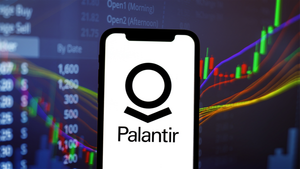“A vital step to consolidate the patchwork of voluntary guidance around climate change disclosures into one single set of norms”
SOURCE: Workiva
DESCRIPTION:
All eyes are on COP26. At the highest possible level, world leaders are discussing how best to tackle climate change and hold each other accountable for their efforts to reduce global warming, writes Andromeda Wood, VP of Regulatory Strategy, Workiva.
But underneath the global discourse, there are equally critical discussions going on about where impact can be made at a grassroots level. One announcement with the potential to mobilise private finance everywhere in order to help reach climate goals is the imminent creation of a new International Sustainability Standards Board (ISSB).
Swapping patchwork policies for global standards
For some time, there has been widespread acceptance of the need for sustainability to be integrated into accounting and reporting systems. This aims to enhance business decision-making and accountability as well as stakeholder trust.
Given the plethora of ESG measurement methods, frameworks and standards that exist, the International Financial Reporting Standards (IFRS) Foundation consulted in September 2020 on whether there was a need for globally accepted sustainability reporting standards. The answer was a resounding yes.
Now, the composition of this new International Sustainability Standards Board (ISSB) is due to be announced at COP26. It marks a vital step to consolidate the patchwork of voluntary guidance around climate change disclosures into one single set of norms globally for all companies reporting the impact of climate change on their business – eventually extending to ESG factors beyond the environment too. And this will act as a catalyst for the mobilisation of private finance globally.
The ability to understand, compare, and contrast a company’s sustainability performance with that of others (and to determine how that company’s performance relates to its value creation), is crucial for investors and other participants in the world’s capital markets. Without this transparency, it becomes much harder to make business and investment decisions which align with, for example, the climate goals set out in the Paris Agreement.
A number of existing frameworks, such as the well-established work of the Task Force on Climate related Financial Disclosures (TCFD), will form the building blocks of these international standards. Yet while the ISSB plans to initially focus its efforts on climate-related reporting – due to the urgent need for better information about climate-related matters – its longer-term plans involve meeting investors’ information needs on other ESG matters too.
The ability to understand, compare, and contrast a company’s sustainability performance with that of others (and to determine how that company’s performance relates to its value creation), is crucial for investors and other participants in the world’s capital markets. Without this transparency, it becomes much harder to make business and investment decisions which align with, for example, the climate goals set out in the Paris Agreement.
A number of existing frameworks, such as the well-established work of the Task Force on Climate related Financial Disclosures (TCFD), will form the building blocks of these international standards. Yet while the ISSB plans to initially focus its efforts on climate-related reporting – due to the urgent need for better information about climate-related matters – its longer-term plans involve meeting investors’ information needs on other ESG matters too.
The dangers of a lack of standardised reporting
Meeting the Paris Agreement objective to limit global temperature increases will require a whole economy transition. In fact, thinking beyond climate change, achieving any of the UN’s Sustainable Development Goals (SDGs) will demand changes not just within the UN member states but at an organisational and individual level everywhere. Every company, bank, insurer, and investor will have to do their part – adjusting business models, developing credible plans for the transition, implementing them, and measuring their progress against ESG criteria.
While many companies have the appetite to transform their business processes for the greater good, it can be difficult to know where to start. The first challenge for any ESG exercise is navigating today’s deluge of measurement frameworks, guidance, protocols, rankings, indices, and standards. Faced with this chaos, it’s all too easy for organisations to waste valuable time or end up with “analysis paralysis” when trying to decide on a first step.
Beyond causing delay or even inaction, the profusion of reporting frameworks and standards do not enable consistent and comparable disclosures. This is a major issue. Investors and stakeholders do not have clear visibility into how a company’s performance against ESG criteria compares with competitors, or even tracks against the company’s initial ESG promises. This makes it difficult to hold businesses to account or choose where best to invest.
From the company’s perspective, a lack of ‘apples to apples’ comparison can also leave them in the dark. Without the ability to set up a peer comparison, the board may feel the business is reporting healthy progress against ESG criteria, even if that is not the case.
The ISSB: a global level playing field
Companies require consistent, transparent, accurate reporting to both meet their regulatory obligations, and to get the true picture of their progress towards ESG objectives. After all, what gets measured gets managed.
With the ISSB in place, no longer will companies judge their progress differently, but instead they can move towards consistent, comparable reporting. With this transparency, businesses can more accurately adjust their business models and drive credible, SDG-aligned corporate sustainability strategies, while investors will have a clearer view into where investments will help unleash the potential of corporate finance for the realization of the SDGs.
In short, taking a more forward-looking, data-driven and standardised approach can enable greater scrutiny and comparability. The ISSB should level the playing field – acting as a yardstick of each business’ commitment to long-term, sustainable value creation.
Mobilising private finance
The reality is that real progress against the climate change goals won’t happen fast enough if organisations rely on public financing alone. Yes, it plays an important role, but to reach net zero, private companies will need to come together and state that they will spend money where it matters, link their own goals to sustainability and make real changes to their business decision-making.
The way in which businesses operate has been transformed by climate change, nature loss, social unrest, and the changing expectations of the role of corporations. Companies are under more pressure to act responsibly.
This pressure is coming from many directions, from regulation to stakeholder demand. Mandates must be met; vendors want to be doing business with companies that are prioritising ESG; customers want to buy from socially responsible businesses; and the best talent wants to work for organisations that act as a force for good. All of these forces are acting on companies, and making ESG an increasing priority.
In response to both this increasing pressure from stakeholders and the need for urgent action on climate change, global baseline sustainability standards are crucial. By creating more comparability, the ISSB will make it easier for businesses to show how they are supporting the goals of COP26 and help the decision-making required to ensure private finance becomes a real catalyst for change.
KEYWORDS: Workiva, NYSE: WK, COP26, Andromeda Wood






